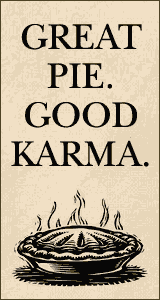 even
months after the town stepped into the national spotlight by refusing to
endorse an Anti-Defamation League program that promotes tolerance and
racial diversity, a committee of residents has recommended a similar
program that does not require sponsorship from town officials.
even
months after the town stepped into the national spotlight by refusing to
endorse an Anti-Defamation League program that promotes tolerance and
racial diversity, a committee of residents has recommended a similar
program that does not require sponsorship from town officials.
On Nov. 7, the Hamilton-Wenham Committee for Tolerance will officially
announce its decision to affiliate with ''Not in Our Town,'' a
nondenominational national organization that ''promotes discussion in
communities across the country about the threat of prejudice and hate
violence.'' Committee members have not announced the curriculum, but said
they hope to present speakers, films, art shows, and community
discussions.
The committee was formed last spring, in the wake of a series of
incidents that followed the Hamilton Board of Selectmen's refusal to sign
a proclamation making the town a ''No Place for Hate'' community.
Citing concern over the language of the proclamation, the selectmen
became the only group of elected officials in the state to reject the
Jewish civil rights organization's program. Instead, the board recommended
that Town Meeting members vote on the proclamation. The public debate that
followed brought Hamilton national coverage.
To date, officials from 56 cities and towns in Massachusetts have
signed the No Place for Hate proclamation.
After selectmen denied charges of anti-Semitism, they created their own
proclamation condemning ''hatred, racism, bigotry, anti-Semitism, the
Holocaust and other forms of genocide, as well as any other evils which
burden humankind.'' Hannah Hoy, the 14-year-old Hamilton resident who had
petitioned the town to sign the ADL proclamation, then denounced the
town's decision in an interview on NBC's ''Today'' show.
As the rhetoric heated up, the National Alliance, an anti-Semitic,
white supremacist group, distributed hate literature in town, and
threatened to attend the Town Meeting. At that point, proponents of the
petition decided to withdraw the Town Meeting proposal, and a committee
for tolerance was formed that would conduct a six-month study of programs
that would fit the town.
''We wanted something neutral, something that wouldn't arouse such
sensitivity,'' said George Beilin, who serves on the Committee for
Tolerance. The Hamilton psychologist said he still believes that the No
Place for Hate program was rejected because of its association with a
Jewish organization, but nonetheless feels the committee can move forward
in its mission to fight prejudice, discrimination, and hatred.
''I would hope it's a closure to the contentiousness and divisiveness
that got stirred up around No Place for Hate,'' said Jerry Schwartz, a
member of the Committee for Tolerance, who originally supported the
Anti-Defamation League proclamation.
The two programs have similar missions, but different nonprofit
sponsors. Not in Our Town grew out of a 1995 PBS documentary about hate
crimes, and like the No Place for Hate program, it asks municipal leaders
to sign a proclamation. The organization also suggests holding public
screenings of documentaries about tolerance, and organizing discussion
groups and human rights and social justice conferences and workshops. It
even lists the Anti-Defamation League's Web site as a resource for
fighting hate.
Hoy said her interest in bringing No Place for Hate to Hamilton was not
spurred by any one incident, but rather a desire to include minorities
that may have felt alienated or excluded. ''Hamilton is a really small
town, and there's not much diversity in it,'' said Hoy. According to the
2000 US Census, 94.2 percent of the 8,315 residents in this upper
middle-class town known for its horse farms identified themselves as
white.
Now president of her freshman class at Hamilton-Wenham Regional High
School, Hoy said she would have preferred the Anti-Defamation League's
program but said the Not in Our Town program might achieve her goal. Hoy
also said she valued the dialogue that her proposal sparked: ''It brought
more awareness to people that we should have a program like this.''
No one knows when the last hate crime occurred here, and educators
point to a curriculum that includes classes in anti- bullying, tolerance,
sexual harrassment and awareness, and a Gay-Straight Alliance endorsed by
the superintendent's office. ''We subscribe to a climate and a culture
that focuses on respect and acceptance of all people,'' said Jean Jones,
health coordinator for the Hamilton-Wenham Regional School District.
In recent months, the Hamilton-Wenham Public Library has taken the lead
in promoting diversity. After receiving a $2,000 grant from the American
Library Association, the library started a four-month cultural celebration
of literature, music, and film in September. Last month it featured songs
and storytelling by Caribbean artist Derek Burrows.
Future programs include films about transracial adoption, and ''Not in
Our Town,'' the documentary about a Montana community that helped launch
the national program. The library will also house the Not in Our Town
proclamation, which will be available for anyone to sign, said Beilin.
No one will predict if the selectmen will sign the document, but Bill
Bowler, who was elected to the Board of Selectmen last spring is
optimistic: ''I think that I can speak for all of us on the board, and say
that we're personally in favor of the program.''
Steven Rosenberg can be reached at rosenberg@globe.com

![]()
![]()
![]()
![]()
![]()

 even
months after the town stepped into the national spotlight by refusing to
endorse an Anti-Defamation League program that promotes tolerance and
racial diversity, a committee of residents has recommended a similar
program that does not require sponsorship from town officials.
even
months after the town stepped into the national spotlight by refusing to
endorse an Anti-Defamation League program that promotes tolerance and
racial diversity, a committee of residents has recommended a similar
program that does not require sponsorship from town officials.

